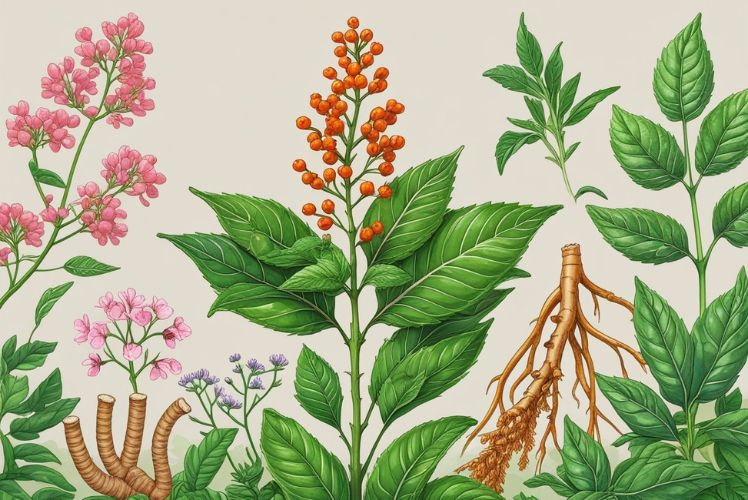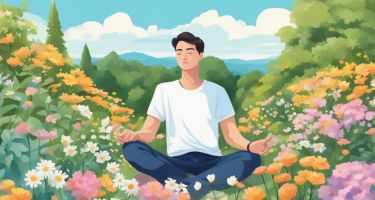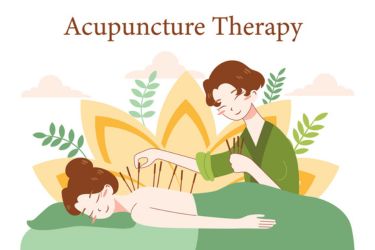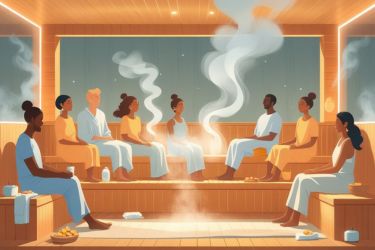Anxiety affects millions of people worldwide, and many are turning to natural remedies to find relief. Herbs like chamomile, lavender, passionflower, and ashwagandha have shown promising results in reducing anxiety symptoms naturally. These plant-based solutions offer a gentler approach compared to conventional treatments.

We've compiled research on the most effective herbs for managing stress and anxious feelings. Our guide covers everything from understanding how herbs work to specific adaptogenic plants that help your body cope with stress. You'll also learn about the connection between herbal remedies and better sleep quality.
Whether you're looking for immediate calming effects or long-term stress management, certain herbs have been used for centuries and now have scientific backing. We'll explore the most popular options and help you understand which ones might work best for your needs.
Key Takeaways
- Several herbs including chamomile, lavender, and ashwagandha have scientific evidence supporting their anti-anxiety effects
- Adaptogenic herbs help your body manage stress whilst also improving sleep quality and overall wellbeing
- Natural herbal remedies can provide gentle relief from anxiety symptoms when used properly and consistently
Understanding Anxiety And The Role Of Herbs

Anxiety affects millions of people worldwide, creating significant challenges in work, relationships, and personal wellbeing. Many individuals seek natural alternatives to conventional treatments, turning to herbal remedies that have been used for centuries across different cultures.
How Anxiety Impacts Daily Life
Anxiety disorders represent some of the most widespread mental health conditions we face today. These conditions go far beyond occasional worry or stress.
Physical symptoms often include rapid heart rate, sweating, trembling, and difficulty breathing. Many people experience chest tightness or stomach problems that can be mistaken for other health issues.
Mental symptoms involve persistent worry, racing thoughts, and difficulty concentrating. We often see people struggling to make decisions or complete tasks they previously handled with ease.
Social consequences can be particularly challenging. Many individuals avoid social situations, decline invitations, or struggle to maintain relationships due to overwhelming anxiety.
Work performance frequently suffers as concentration becomes difficult. Simple tasks may take longer to complete, and productivity often decreases significantly.
Sleep disturbances are common, creating a cycle where poor rest worsens anxiety symptoms. This leads to fatigue that makes coping with daily stressors even more challenging.
Why People Turn To Herbal Remedies
Traditional anxiety medications can produce unwanted side effects that many people find difficult to tolerate. Common issues include drowsiness, weight gain, and dependency concerns.
Cost considerations play a significant role in treatment choices. Prescription medications and therapy sessions can be expensive, whilst many herbal options are more affordable and accessible.
Cultural traditions influence remedy choices across different communities. Many cultures have used specific herbs for anxiety relief for hundreds or thousands of years.
The appeal of natural solutions draws people seeking alternatives to synthetic medications. Many individuals prefer treatments that feel more aligned with their personal health philosophy.
Accessibility makes herbal remedies attractive since many can be purchased without prescriptions. This allows people to begin treatment without waiting for medical appointments.
Some people experience limited success with conventional treatments and seek additional options. Herbal remedies may complement existing treatments or provide alternatives when medications prove ineffective.
Limitations And Considerations Of Herbal Supplements
Regulation differences mean herbal supplements face less stringent testing than prescription medications. Quality and potency can vary significantly between manufacturers and products.
Drug interactions present serious risks we must consider carefully. Many herbs can interfere with prescription medications, potentially reducing effectiveness or creating dangerous reactions.
Dosage uncertainty complicates herbal supplement use since optimal amounts are often unclear. Unlike prescription medications with established dosing guidelines, herbal remedies lack standardised recommendations.
Scientific evidence varies considerably among different herbs. Whilst some have substantial research support, others rely primarily on traditional use without rigorous clinical testing.
Individual responses to herbal remedies can differ dramatically between people. What works effectively for one person may produce no benefits or unwanted reactions in another.
Professional guidance becomes essential when considering herbal treatments. We strongly recommend consulting healthcare providers before beginning any herbal supplement regimen, particularly when taking other medications.
Most Popular Herbs Against Anxiety

These three herbs have gained widespread recognition for their ability to reduce anxiety symptoms naturally. Each offers unique mechanisms for calming the nervous system and promoting mental wellbeing.
Chamomile: Calming Effects And Benefits
Chamomile stands as one of the most researched herbs for anxiety relief. We find it particularly effective due to its active compound apigenin, which binds to brain receptors that promote relaxation.
The herb works by reducing cortisol levels in our bodies. This stress hormone often contributes to feelings of worry and tension.
Studies show chamomile can decrease anxiety symptoms within weeks of regular use. Many people notice improvements in both daytime anxiety and sleep quality.
Common forms include:
- Dried flowers for tea
- Standardised extracts
- Essential oils
- Capsules
We recommend starting with chamomile tea, consuming 1-2 cups daily. The gentle nature of this herb makes it suitable for most people, though those with ragweed allergies should exercise caution.
Lemon Balm: Easing Nervous Tension
Lemon balm belongs to the mint family and offers potent anti-anxiety properties. We appreciate its dual action of calming the mind whilst improving cognitive function.
The herb increases GABA activity in our brains. GABA is a neurotransmitter that naturally reduces nervous system activity and promotes calmness.
Research indicates lemon balm can reduce stress-induced anxiety within hours of consumption. It's particularly helpful for situational anxiety and restlessness.
Effective preparation methods:
- Fresh leaf tinctures
- Dried herb teas
- Standardised capsules
- Combined herbal blends
We suggest using 300-600mg of standardised extract daily. Fresh lemon balm tea can be consumed multiple times throughout the day for ongoing support.
Passionflower: Promoting Relaxation
Passionflower has been used traditionally for centuries to treat nervous conditions. We find it especially beneficial for people experiencing both anxiety and insomnia.
The herb contains chrysin and vitexin, compounds that increase GABA levels naturally. This creates a gentle sedative effect without causing drowsiness during daytime use.
Clinical trials demonstrate passionflower's effectiveness rivals some pharmaceutical options. It reduces generalised anxiety symptoms whilst supporting healthy sleep patterns.
Available preparations include:
- Liquid extracts
- Dried aerial parts for tea
- Standardised tablets
- Combination formulas
We recommend 45mg of extract taken 1-2 times daily, or consuming passionflower tea 30 minutes before bedtime for optimal relaxation benefits.
Other Effective Herbs For Anxiety Relief

Valerian root provides natural sedative effects that help calm the nervous system and improve sleep quality. Tulsi and holy basil work by supporting the body's stress response system and helping maintain healthy cortisol levels.
Valerian Root: Natural Sedative Qualities
Valerian root has been used for centuries as a natural remedy for anxiety and sleep problems. The herb contains compounds that interact with GABA receptors in our brain.
GABA is a neurotransmitter that helps calm nervous system activity. When valerian root binds to these receptors, it creates a relaxing effect throughout the body.
Key benefits of valerian root include:
- Reduces muscle tension
- Improves sleep quality
- Calms racing thoughts
- Eases physical symptoms of anxiety
We typically see effects within 30 minutes to 2 hours after taking valerian root. The herb works best when taken regularly rather than just during acute anxiety episodes.
Most people take 300-600mg of valerian root extract about an hour before bedtime. The herb has a strong, earthy smell that some find unpleasant.
Tulsi And Holy Basil: Supporting Adrenal Balance
Tulsi, also known as holy basil, belongs to a group of herbs called adaptogens. These plants help our bodies manage stress more effectively.
Holy basil works by regulating cortisol production in our adrenal glands. High cortisol levels often contribute to feelings of anxiety and overwhelm.
Tulsi provides several stress-fighting benefits:
- Balances cortisol levels
- Supports healthy blood sugar
- Reduces inflammation
- Improves mental clarity
We can consume tulsi as a tea, capsule, or tincture. The herb has a pleasant, slightly spicy flavour that many people enjoy.
Regular use of holy basil may help prevent anxiety rather than just treating symptoms. Most studies suggest taking 300-600mg daily for best results.
Ashwagandha And Adaptogenic Herbs

Ashwagandha stands out as one of the most researched adaptogenic herbs for anxiety relief, with studies showing it can reduce cortisol levels by up to 30%. These remarkable plants work by helping our bodies adapt to stress more effectively through their unique ability to regulate our stress response systems.
Ashwagandha: Stress Reduction And Resilience
Ashwagandha has been used in Ayurvedic medicine for thousands of years. This powerful herb helps our bodies manage both physical and emotional stress more effectively.
Research shows that ashwagandha can significantly lower cortisol levels. Cortisol is our main stress hormone. When we have too much cortisol, we feel anxious and stressed.
Key benefits of ashwagandha include:
- Reduced anxiety symptoms
- Better sleep quality
- Lower stress hormone levels
- Improved mental clarity
- Enhanced physical resilience
The herb works by supporting our adrenal glands. These glands produce stress hormones. When they function better, we handle stress more easily.
Studies suggest taking ashwagandha regularly for several weeks produces the best results. Most people notice improvements in their stress levels within 2-4 weeks of consistent use.
How Adaptogens Work To Combat Anxiety
Adaptogens are unique plants that help our bodies maintain balance during stressful times. They work differently from other herbs because they adapt their effects based on what our bodies need.
These herbs target our hypothalamic-pituitary-adrenal (HPA) axis. This system controls how we respond to stress. When it works properly, we feel calmer and more balanced.
Adaptogens help by:
- Regulating stress hormone production
- Supporting healthy cortisol rhythms
- Improving energy without overstimulation
- Protecting cells from stress damage
Popular adaptogenic herbs besides ashwagandha include rhodiola, holy basil, and ginseng. Each has slightly different strengths, but all help reduce anxiety symptoms.
The beauty of adaptogens lies in their gentle approach. They don't force changes in our bodies. Instead, they support our natural ability to cope with stress and maintain emotional balance.
Herbs And Better Sleep: A Connection
Many herbs that reduce anxiety also promote better sleep quality by calming the nervous system and reducing stress hormones. The relationship between anxiety and sleep problems creates a cycle where poor sleep increases anxiety, whilst anxiety makes falling asleep more difficult.
Herbal Approaches To Improving Sleep Quality
Several herbs work directly on our sleep mechanisms through different pathways. Valerian remains one of the most studied sleep herbs, helping us fall asleep faster by increasing GABA activity in the brain.
Passionflower offers another effective approach. It reduces restlessness and calms racing thoughts that often keep us awake at night.
Chamomile provides gentle sedative effects without morning grogginess. We can use it safely as a bedtime tea or supplement.
| Herb | Primary Action | Best Form |
|---|---|---|
| Valerian | Increases GABA | Capsules, tincture |
| Passionflower | Reduces restlessness | Tea, extract |
| Chamomile | Mild sedative | Tea, capsules |
| Lemon balm | Calms nervous system | Tea, fresh herb |
These herbs work by stimulating our central nervous system's relaxation response. They help lower cortisol levels and promote the production of sleep-supporting neurotransmitters.
The Relationship Between Anxiety And Sleep
Anxiety and sleep problems feed into each other in a destructive cycle. When we're anxious, our bodies produce more cortisol and adrenaline, making it harder to wind down at bedtime.
Poor sleep then makes us more vulnerable to anxiety the next day. Our emotional regulation suffers, and small stresses feel overwhelming.
Stress blocks serotonin production, which we need for quality sleep. This creates a chemical imbalance that affects both our mood and sleep patterns.
Herbs help break this cycle by addressing both issues simultaneously. They reduce anxiety symptoms during the day whilst preparing our bodies for restful sleep at night.
Many sleep herbs contain tryptophan, an amino acid that supports serotonin production. This helps restore the natural balance our bodies need for both calm moods and quality sleep.
Choosing The Right Herbs For Night-Time Support
Different herbs suit different sleep problems and individual needs. Ashwagandha works well for people whose sleep issues stem from chronic stress and high cortisol levels.
For racing thoughts at bedtime, we might choose passionflower or lemon balm. These herbs specifically target mental restlessness and worry.
Timing matters when using sleep herbs. Most work best when taken 30-60 minutes before bedtime, allowing time for absorption and effect.
Start with single herbs rather than complex blends. This helps us identify which ones work best for our specific needs.
Consider your other medications and health conditions. Some herbs interact with prescription drugs, particularly sedatives and blood pressure medications.
Typical dosing ranges:
- Valerian: 300-600mg extract
- Passionflower: 200-400mg extract
- Chamomile: 1-2 cups tea or 400mg capsules
Begin with lower doses and increase gradually. What works for better sleep varies significantly between individuals, so patience with finding the right herb and dose is essential.
Frequently Asked Questions
These common questions address the most researched herbal options for anxiety, from traditional remedies like chamomile and valerian root to modern adaptogenic herbs such as ashwagandha. We'll explore which natural treatments show the strongest evidence for reducing stress and anxiety symptoms.
What are the most effective herbal treatments for managing anxiety?
The most studied herbal treatments include chamomile, ashwagandha, and passionflower. These herbs have shown consistent results in clinical research for reducing anxiety symptoms.
Chamomile works by binding to brain receptors that promote relaxation. It's particularly effective for mild to moderate anxiety and can be taken as tea or capsules.
Ashwagandha helps lower cortisol levels, which reduces the body's stress response. Studies show it can significantly decrease anxiety symptoms within 4-8 weeks of regular use.
Passionflower increases levels of GABA in the brain, creating a calming effect. Research indicates it performs as well as some prescription anxiety medications for generalised anxiety.
Which natural supplements have been shown to alleviate symptoms of stress and anxiety?
Valerian root has extensive research supporting its anti-anxiety effects. It works by increasing GABA activity in the brain, which promotes calmness and reduces nervous tension.
Lemon balm contains compounds that block certain brain receptors linked to stress. Clinical trials show it can reduce anxiety symptoms and improve mood within hours of taking it.
Holy basil acts as an adaptogen, helping the body cope with stress more effectively. Studies demonstrate it can lower cortisol levels and reduce both physical and mental stress symptoms.
Rhodiola rosea helps regulate the stress hormone system. Research shows it can improve stress resilience and reduce anxiety-related fatigue.
Can certain vitamins play a role in reducing anxiety and panic attack frequency?
Magnesium deficiency is linked to increased anxiety and panic attacks. Supplementing with magnesium glycinate can help calm the nervous system and reduce muscle tension associated with anxiety.
B-complex vitamins support healthy neurotransmitter production. Low levels of B6, B12, and folate are associated with higher anxiety rates.
Vitamin D deficiency correlates with increased anxiety symptoms. Maintaining adequate vitamin D levels through supplementation may help reduce anxiety frequency.
Omega-3 fatty acids from fish oil help regulate brain chemistry. Studies show they can reduce anxiety symptoms and support overall mental health.
What traditional herbal remedies have a history of use in treating anxiety?
Lavender has been used for centuries to promote relaxation and reduce nervous tension. Traditional preparations include teas, tinctures, and aromatherapy applications.
Kava has a long history in Pacific Island cultures for reducing anxiety and promoting social calm. Traditional use involves drinking kava root preparations in ceremonial settings.
Skullcap was traditionally used by Native Americans for nervous conditions. It contains compounds that support GABA activity in the brain.
Melissa officinalis (lemon balm) has been used since medieval times for nervous disorders. Traditional herbalists prescribed it for anxiety, restlessness, and sleep problems.
What immediate natural interventions can help soothe anxiety?
Chamomile tea can provide calming effects within 30-60 minutes of consumption. The warm liquid and ritual of tea-drinking also contribute to relaxation.
Lavender essential oil used in aromatherapy can reduce anxiety symptoms quickly. Inhaling lavender scent activates brain pathways that promote calm feelings.
Lemon balm tincture works rapidly when taken under the tongue. Its compounds are absorbed quickly into the bloodstream for fast-acting relief.
Deep breathing exercises combined with peppermint tea can provide immediate nervous system support. The menthol in peppermint has muscle-relaxing properties.
What are the best herbal remedies for both anxiety and depression?
St. John's wort has research supporting its use for both mild depression and anxiety. It works by affecting serotonin, dopamine, and norepinephrine levels in the brain.
Ashwagandha addresses both conditions by regulating cortisol and supporting healthy neurotransmitter balance. Studies show benefits for both anxious and depressive symptoms.
Rhodiola rosea helps with stress-related anxiety and low mood. Its adaptogenic properties support mental resilience and emotional stability.
Saffron extract has shown promise for both anxiety and depression in clinical trials. It appears to work similarly to some prescription antidepressants but with fewer side effects.





















